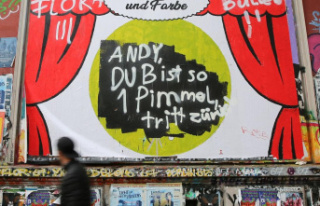In order to reduce packaging waste, the German Environmental Aid (DUH) is calling on cities to do more in the fight against disposable cups and other disposable items. "The littering of public spaces has reached dramatic proportions in recent years," said DUH federal director Barbara Metz. "Something needs to be done urgently to switch to reusable." The organization recently wrote to 202 cities asking for answers as soon as possible on how the town halls intend to proceed.
The DUH advocates funding for restaurants that switch to reusable and have extra costs for dishwashers and dishes. The DUH also considers municipal taxes to be useful in order to make disposable packaging more expensive. In addition, authorities should no longer be allowed to use cups, plates or take-away boxes in city canteens that are designed for single use only.
Tons of plastic waste avoidable
According to environmental aid estimates, more than 2.5 billion single-use cups, food boxes, plates and cutlery could be avoided in the 202 cities now being contacted. This in turn would result in 27,000 tons less waste and 84,000 tons of CO2 would be saved. The estimate includes the amount of CO2 that would result from the production of the reusable alternatives.
In Corona times, the amount of disposable tableware has grown significantly, for example because people work a lot in the home office and order food from delivery services. As a result, more pizza boxes and plastic trays end up in the rubbish bins than before. In addition, there are masses of to-go coffee cups that are thrown away after a single use.
Reusable alternative becomes mandatory
A federal law could soon bring some improvement: from January, restaurants must offer reusable alternatives. You can still sell the food in single-use packs, but the consumer must be able to choose a reusable alternative. From the point of view of DUH expert Metz, however, this is far from sufficient. "A restaurateur would have satisfied the obligation to offer if he put a reusable cup on the shelf and let it gather dust there." There are also extensive exemptions for smaller companies. "In Berlin-Mitte alone, more than 500 snack bars and kiosks do not fall under the reusable offer obligation."
The environmental aid is now hoping for the cities so that the garbage problem is tackled consistently. In 2020 and 2021 she wrote to a total of 130 cities and districts and asked for measures. The feedback was mostly positive, says Metz. "Most city administrations are aware that there is a need for action." The willingness is there, but sometimes there is still a lack of measures.
The environmental aid organization named Hamburg, Munich and Tübingen as positive examples of cities that are actively taking action against disposable packaging. A consumption tax has been in force in the Swabian city since this year, which, among other things, charges 50 cents for each disposable beverage container. Due to a legal dispute with the local McDonald's branch, the tax will only be collected once Tübingen has prevailed before the Federal Administrative Court.












